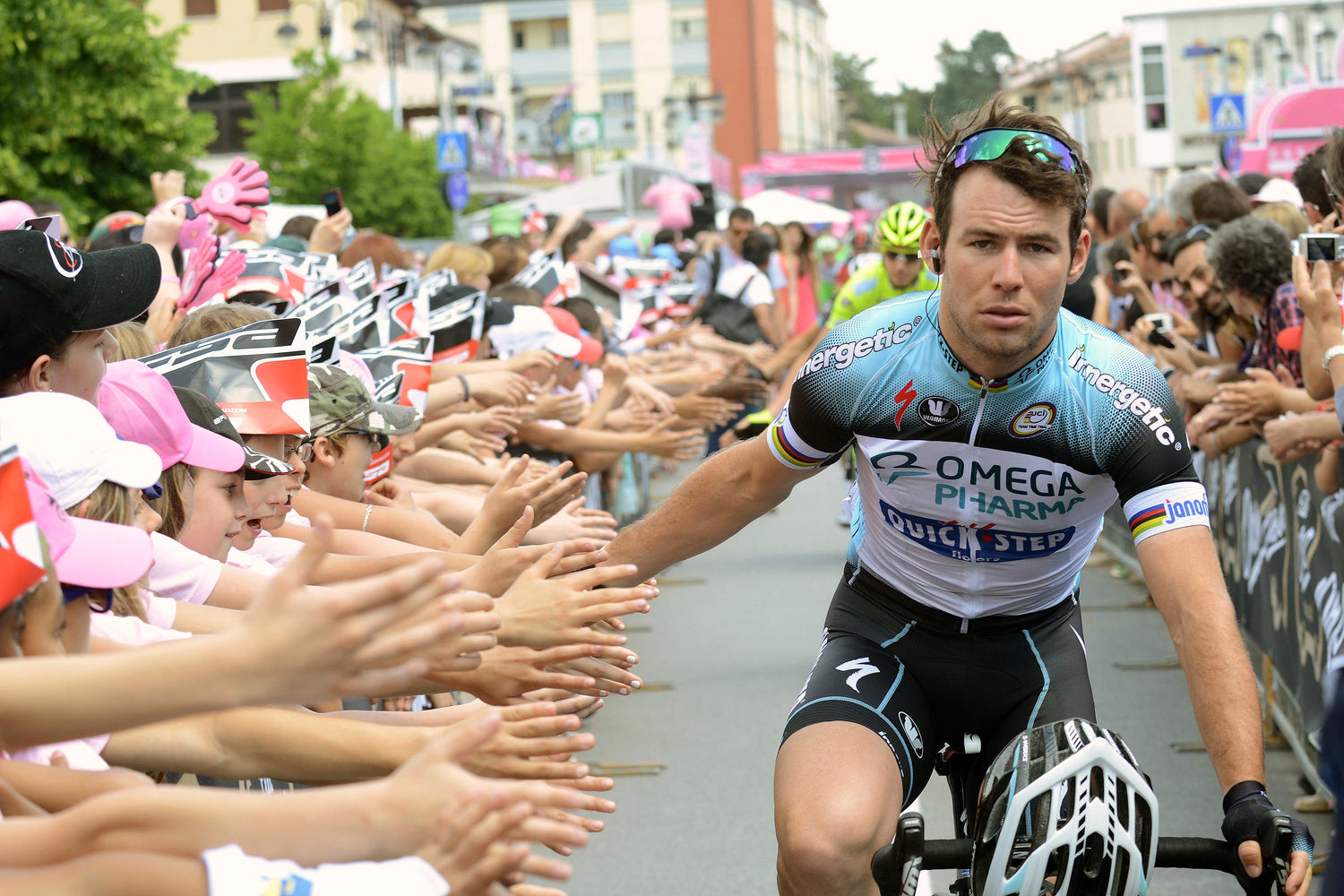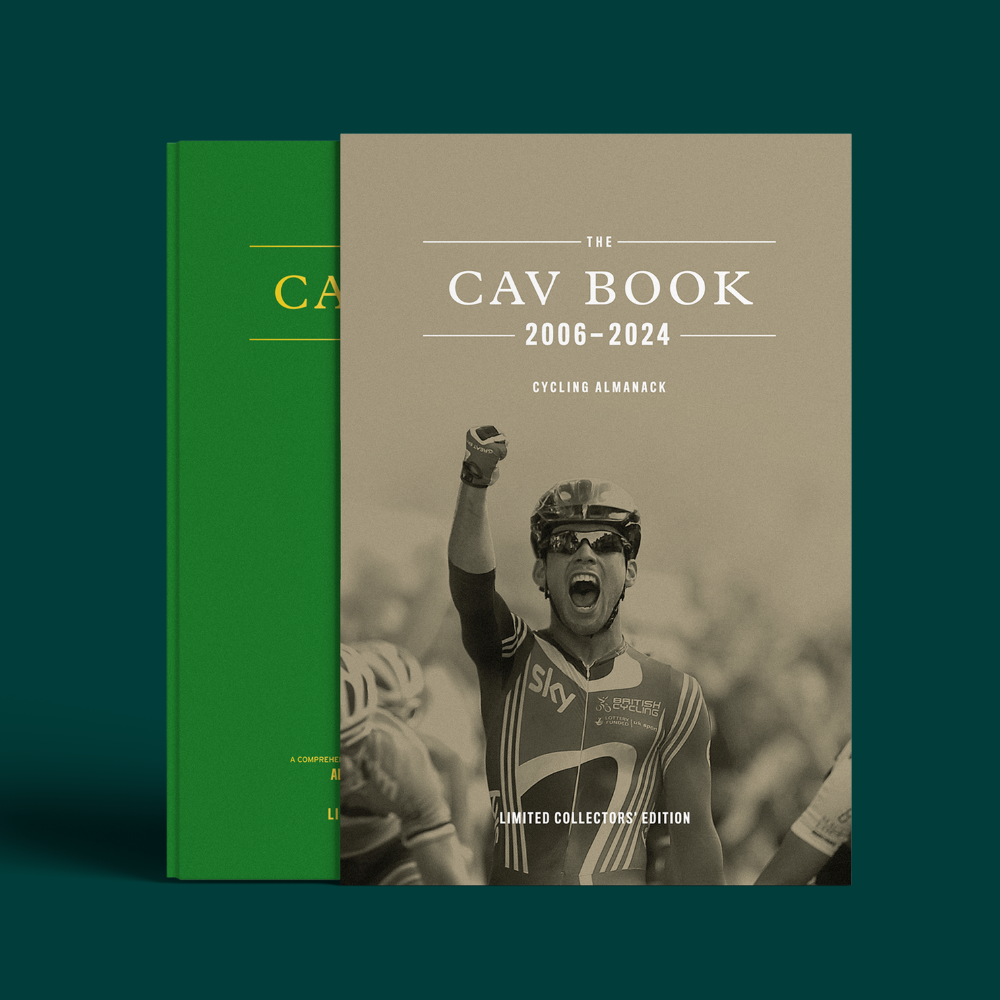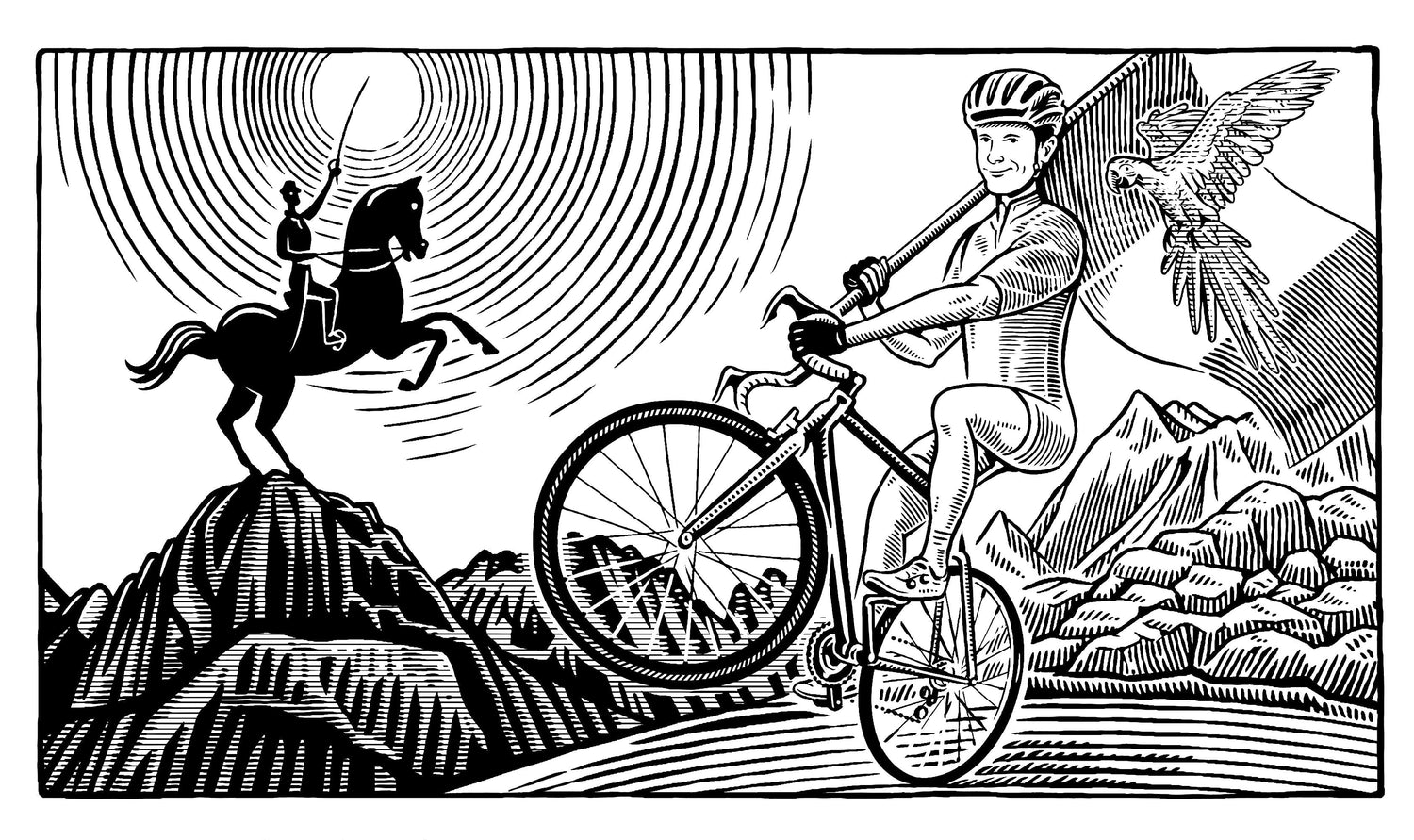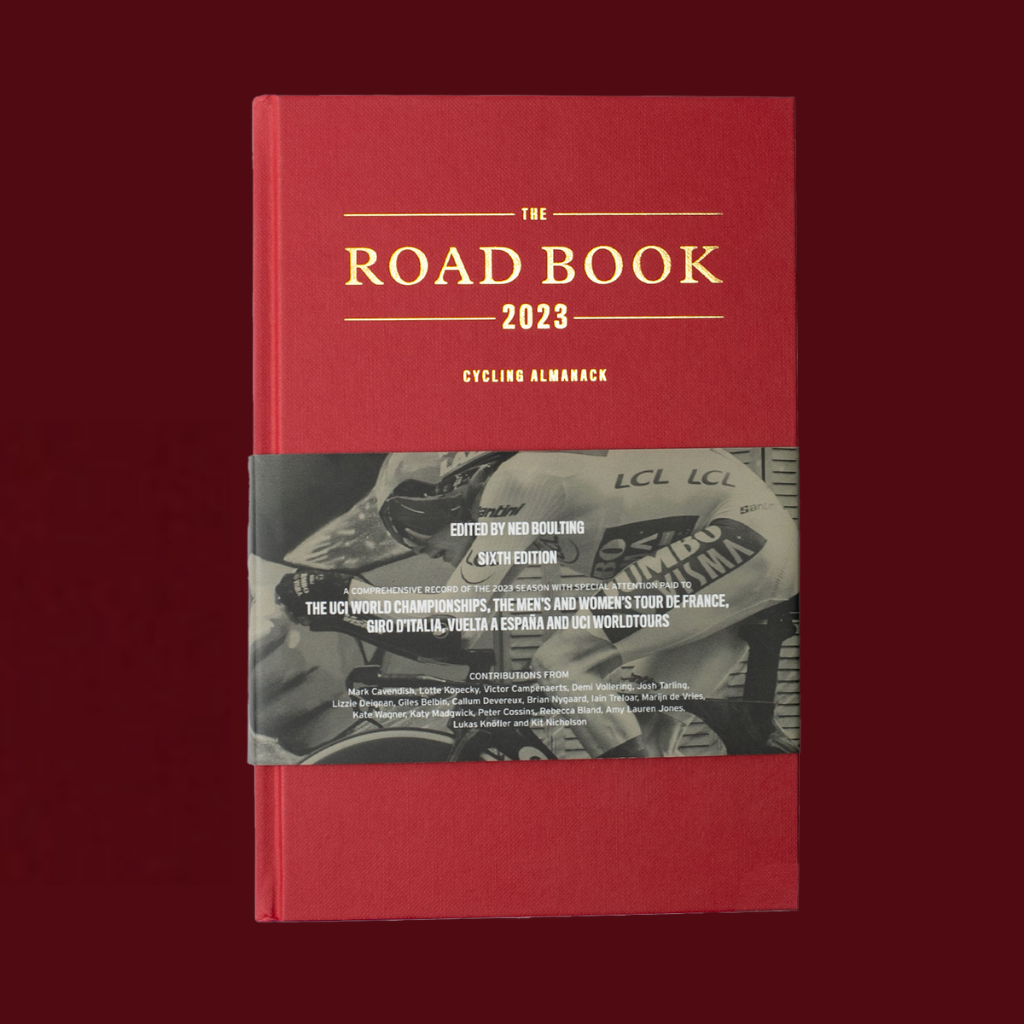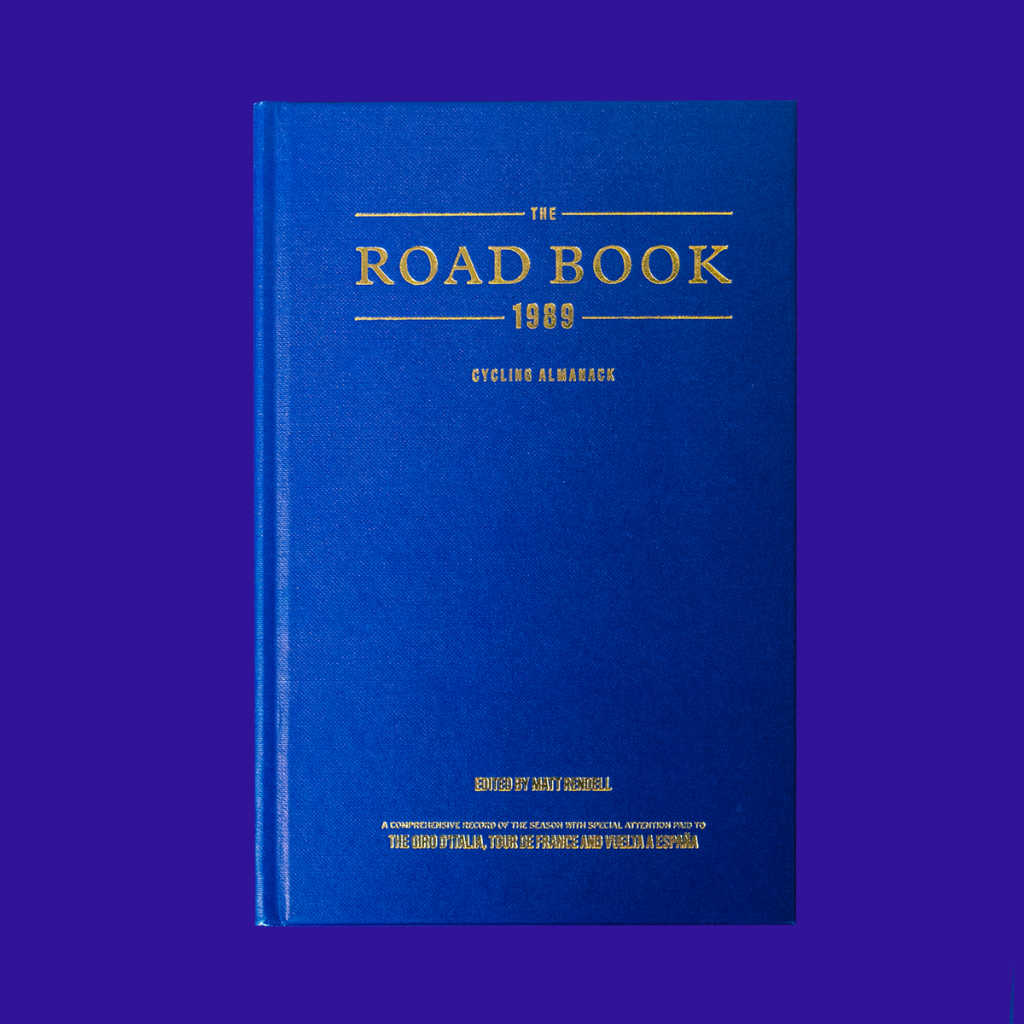This year, our multi-Faceted editor, Ned Boulting, will be attending The Tour of Flanders as a fan, alongside firm friend of The Road Book and former British Road Racing Champion David Millar. They will be hosting an evening with Sports Tours International, and it’s got us thinking ahead to those famous Flemish cobbles.
We've got an extract from a fantastic piece that Ed Pickering (Rouleur Editor) wrote for us in 2022, discussing that year's Tour of Flanders, and what it might tell us about shifting paradigms in cycling.
If you want to read the whole piece, and look back on 2022, use the code: RED22 at checkout to pick-up The Road Book 2022 at HALF-PRICE for a limited time only!
The finish of the men’s Tour of Flanders said a great deal about where we are in Classics racing in 2022. A lot was happening in the last few metres: Tadej Pogačar throwing his hands up in frustration at getting boxed in; Mathieu van der Poel wildly celebrating a second win; Dylan van Baarle giving the Ineos Grenadiers their first-ever podium at the race; Valentin Madouas of Groupama-FDJ reminding bike fans that a good rider on a great day can still beat great riders who are on good days…
A snapshot of the finish would be revealing not just for who and what was in the picture but also what was missing: any rider from Quick-Step Alpha Vinyl. The finishing straight of the Tour of Flanders, on the edge of Oudenaarde, is famous for being long, straight and wide, but you’d have to squint far, far into the distance to see the first rider from the Belgian squad. Their best on the day was Kasper Asgreen, a former winner no less, in 23rd place, who was technically contesting 15th place but looked far from motivated to do so. Fifteenth, 23rd, they’re the same thing when you’ve won the race before. It was the first time of the 20 occasions Quick-Step Alpha Vinyl has contested the Tour of Flanders that they didn’t get anybody into the top 13. They’ve won it eight times; five more times their best result was runner-up; 2007 and 2013 were the only previous occasions they’d not got at least one rider into the top ten.
In his book The Structure of Scientific Revolutions, the American philosopher of science Thomas Kuhn proposed that knowledge doesn’t evolve and advance in a linear way but rather undergoes periods of revolution in which new paradigms replace old ones. These paradigm shifts occur when people develop entirely new ways of thinking or seeing the world. You don’t have to, as Kuhn did, get too into explaining how Copernican astronomy supplanted Ptolemaic astronomy, or why Einsteinian physics necessarily proved Newton to be inaccurate, to understand the principle behind paradigm shifts: sometimes it’s just a case of trying something new or reacting against the established way of doing things.
Cycling paradigm shifts are relatively uncommon. There’s more to it, for example, than younger riders coming into their peak years and eclipsing the older generation. At the Tour de France in the last 25 years, Chris Froome did the same as Alberto Contador did the same as Lance Armstrong (the doping notwithstanding) did the same as Miguel Indurain. The athletic performance and technology evolved considerably during these riders’ successive eras of domination, but the method – crush the opposition early then defend with a strong team – did not. Doing things the same but better is not a real paradigm shift. Even Mark Cavendish’s incredible success in the sprints from 2008 onwards might not have been a proper paradigm shift. His lead-out train was the best that had been seen up to that point, but it didn’t do things recognisably differently from Mario Cipollini’s Saeco train; the real paradigm shift behind Cavendish’s success might have been the combination of his attention to detail and the ‘marginal gains’ adopted by British Cycling at the same time as he was developing through their programme.
However, there’s a sense that something has changed in cycling in the last season or three. Breaks are sticking, race-defining attacks are going from further out, riders are contesting a broader variety of races… And our snapshot of the Tour of Flanders finish line is as good an illustration as any of the significant changes the sport is undergoing...
Intrigued? Then pick-up a copy using the RED22 discount at the link below to read more:
https://theroadbook.co.uk/collections/all-products/products/the-road-book-2022-first-edition
What do you think of this, two years on? Has cycling changed? For the better, or to the detriment of the sport? Let us know what you think by tagging us over on X (Formerly known as Twitter):
https://twitter.com/CyclingAlmanack



